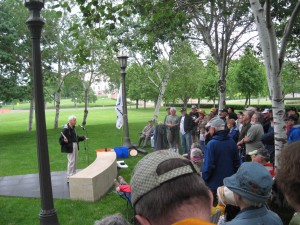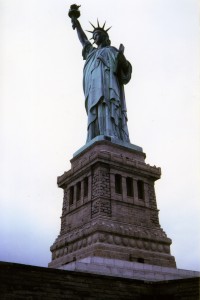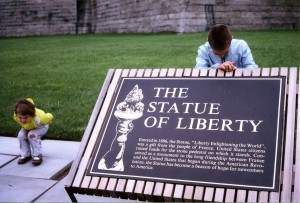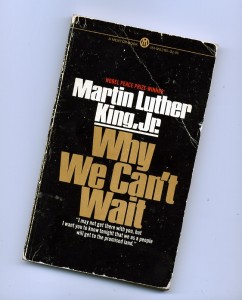NOTE SEP 12, 2011: This is becoming a voluminous post with a great number of comments. All flow from my reflection on Sep. 11, 2001, and the ten years after, here. I plan to keep this comments page up to date and current as any personal opinions are provided. Check back once in awhile. Directly related posts here; here; and here.
Almost all of what follows are individual comments received in the last three days from numerous individuals. I have included all comments that I received, responding to a few.
My personal reflections on 9-11 and the 10 years following were published on Friday, September 9, here. My Sep 10 post on Ed Asner as FDR directly relates to this. It is here.
This space reflects comments offered to that blog post, as well as other comments made in other venues by individuals I know, personally.
We can now choose to change the conversation, or continue with what caused us so much trouble the last ten years. Change will not be easy, for anyone. But we change, or we die.
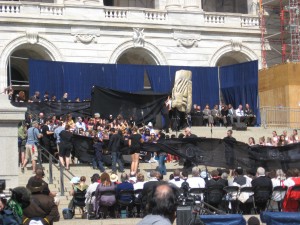
Opening Ceremony at Minnesotans Standing Together, Minnesota State Capitol, Sunday, September 11, 2011
(click on photo to enlarge) (Also see comment #38 below.)
1. Lori Sturdevant, Facebook, Sep 11
Experiencing the shared resolve Americans found 10 years ago gives me hope for today. So does the good work done by the Minnesota Council of Churches in organizing today’s moving Capitol commemoration of 9/11, which lifted up the value of diversity. There’s a great deal of good will on which to build a better state and country.
2. From Joyce Denn, Sep 11
17:42 of film completed three weeks after 9-11-01
Thanks, Adela, for posting this first – watch it and see if you can keep from crying, especially when thinking of the good will and solidarity that were squandered in the aftermath.
What’s wrong with this picture?
here
3. Will Shapira in the Sep 11 St. Paul Pioneer Press:
On 9/11: Double down on our resolve
The 10th anniversary of 9/11 should, in my view, be much more than remembering where we were when we heard the shocking news and how we reacted a decade ago.
It must be a time to double down on our resolve to increase the pressure on President Obama and Congress to end the illegal and immoral wars that President Bush started in the days of rage and recrimination immediately after 9/11. And it must be a time to hold Mr. Obama to his 2008 campaign promise to end those wars.
It also must be a time to wipe off the law books once and for all the nefarious Patriot Act that Mr. Bush rammed through Congress in the post-9/11 days of chaos, and which Mr. Obama, in one of his infamous, off-putting capitulations, has now extended.
And in that same vein, it’s way past time for Mr. Obama to order the FBI to halt its illegal harassment of ordinary citizens exercising their constitutional rights of peacefully protesting war and advocating for social and economic justice.
It must be a time to increase our scrutiny of how our veterans are being treated once they come home, to make sure they get the medical care they need and help to transition back into productive, peaceful civilian lives and, where necessary, provide care for the families who still have loved ones on the fields of battle.
It must be a time to end torture in all of its forms and in all of its venues and to bring to justice its practitioners, past and present.
On a broader level, it must be a time to seriously examine our capitalist political and economic system, to see if it truly is providing “liberty and justice for all” and, if not, start to boldly examine some alternatives.
Finally, let’s hope that when we mark the 20th anniversary of 9/11, we can look back and remember this occasion as a starting point of our efforts to erect not only a monument and rising new structure at Ground Zero/Lower Manhattan but to build an America that will reach out to the peoples of the world – a peaceful and just America that they will not fear and hate.
That will be the lasting and most important legacy of 9/11.
Willard B. Shapira, Roseville
The writer is a member of Veterans for Peace and the Workers International League.
4. Prof. emeritus Joseph Schwartzberg Sep 9
Thanks for your latest blog. I read it with great interest and followed up on several of the links. Good work!
5. University Student Allison Stuewe, who was 11 on 9-11-01:
I so enjoyed reading your blog post! It really is incredible to think about how we have chosen as a country to respond to 9/11 and how it has changed our nation and, unfortunately, the world.
6. From the blogger Just Above Sunset:
This is VERY good. I have no idea what I’ll write about this. I’m putting it off until Saturday evening. But I may find I have nothing to say. Silence may be more respectful. [He did write a
blog post after all.]
7. Jim Poradek, Sep 9, 2011:
just read your 9-11 post. I was curious to see how you approached it. I found it excellent – I imagine because it so closely mirrored my own feelings about the subsequent wars.
Jackie and I watched “Fair Game” last night. It’s the Valerie Plame/Joe Wilson/Bush-WH- Iraq-war story. Even after all these years it is disturbing and distressing.
Using Netflix protocol your post and Fair Game both get 5 stars.
UPDATE Sep 17 (Click on photo to enlarge)
I was going through photos for a project and came on the attached photo. In the winter and spring of 2003 as it became clear that Bush was going to war – and did in March, we had weekly (sometimes more) demonstrations in Bloomington, Indiana. Of the photos I took, this has been a favorite because of the colorful diversity of signs and people. It was taken in early May before the school year ended. The Friends in Bloomington were always involved in anti-war and social justice issues. They provided the “War is not the answer!” sign the IU student is carrying. His companion was more creative.
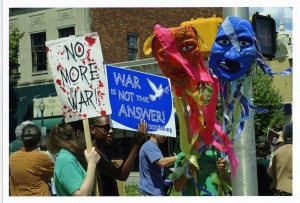
Protest Bloomington IN early 2003
:
THANKS FOR THIS POWERFUL AND INFORMATIVE SHARING.
WE MUST ALL PRAY AND ACT FOR PEACE IN OUR WORLD!
9. Rev. Lyle Christianson Sep 10, 2011:
Dick, because of other pressing issues I hesitated downloading and printing your extended comments, but glad I did. I share much the same feeling as you do. I have a special feeling for New York City after working there for one summer during college and spending a year there in graduate work at Union Theological Seminary and Columbia University.
Also, you may not know that Dorothy Anne and I were in Egypt on 9-11-01 and were privileged to note close-up the reaction of many in that nation as well as Jordan where we were forced to remain until we could obtain a flight back to New York. Among the people with whom we visited was a young Muslim who was scheduled in a day or two to fly to New York. I remember his expression of fear over how he would be treated in light of what had taken place. I wonder if fear is not what makes us do so many foolish things. [NOTE from Dick: My wife and I were in England post-9-11, late October. There had been some apprehension about following through on a long-booked plan, but we were very glad we went as scheduled.]
Further, religion has to do with our relation to our Creator (who is both hidden and revealed) and what we feel our Creator wants us to be and do. Religion also has to do with our relation to our neighbor. Therefore everyone has a religion. The question is whether or not one has a healthy religion that nurtures healthy relationships or unhealthy relationships. The world and our nation needs good and healthy religion as never before.
Best wishes to you, Dick, always.
10. Fred Johnson, Sep 10, 2011
A very well written and reasoned piece. Hopefully more than a few folks will be reading it!
11. Marion Brady, Sep 10, 2011
Thanks much, Dick.
Some time ago I cut out a comic strip drawn by Wiley (www.nonsequitor.com).
First frame:
[Little girl, with grandfather, walking dog]
“Sometimes I wonder how we got words. like where does ‘war’come from?”
[Grandfather]
“It’s a universal acronym.”]
Second frame:
[Little girl]
“An acronym of what??
[Grandfather]
“We Are Right.”]
Third frame:
Wordless. Little girl looking thoughtful.
Fourth frame:
[Little girl]
“Y’know, that stupidly makes some sense…
[Grandfather]
“I thought you’d like it…”
12. Beth Brownfield, Sep 10, 2011
Right on Dick!
Here’s what I’m involved in. Have had incredible results in the last week. From 6 congregations nationally passing our resolution it is now going to the board of trustees of our Unitarian Universalist Association for consideration for this coming year’s general assembly in Phoenix where we chose in 2010 to go to instead of boycotting. We are going to confront immigration/migration issues nationwide. Our business as usual is being suspended and there may be only one or so resolutions that are presented. Also they are planning a panel that will be part of the program, not an elective workshop in breakouts! IT IS A MIRACLE that we have connected the dots with the work of myself and another man in Peoria IL to bring this before our denomination (back in 2010!).
The
Doctrine of Discovery is at the heart of this, our country’s greed, our domination of indigenous peoples, immigrants, our grab for resources no matter the cost. It is INCREDIBLY invasive and embedded. The Permanent Forum on the Rights of Indigenous Peoples has made this the focus of intense study in 2012 and all participating indigenous nations are writing reports on how the DOD has affected them historically and currently.
The Episcopalians have repudiated the DOD in 2010, the Quakers are doing it meeting by meeting, the World Council of Churches is just in the beginning stage of considering it.
13. From Commander of my local American Legion Post (I’m a long-time member)
Dick, As always your comments reflect deep thought, are very well presented,
and I appreciate reading them.
Your latest I’m going to have to go through a second time to fully absorb.
Like many people I often suspect I could do a much better job of running the
government than we’ve experienced over the past years. Then I usually, not always, regain
my senses and accept that many of those calling the shots, perhaps most, are much smarter
than I, and likely have enormously more knowledge on which to make the best decisions at the time.
I had a lot of issues with what went on during the Bush administration, and I’ve got a lot
of issues with Obama’s administration. God knows that I’m in almost weekly contact with
our two Senators and my Congresswoman. And at my age I’m picking the hills I’m willing to die over
carefully.
In closing, Dick, it’s great to have you as a member
13A. Dick: I chose to respond to the Commanders one, thus:
This one was, indeed, a long one…longer than anything I’ve written, and much more carefully written, too.
Of everything I paid note of in that post was the column I wrote in February, 2002, which was published in the Star Tribune April 20, 2002. (I actually wrote it for the 6 month anniversary of 9-11, which was March 11, and I thought that when that date passed they’d trash-canned it. But then I got the call that they were going to use it.)
Anyway, it is of huge significance to me that I, by that time an activist (the Afghanistan bombing pushed me over the edge), had so little awareness of “Iraq” as an issue that I didn’t even mention the word. After October 7, 2001, I attended lots and lots of assorted meetings and apparently Iraq was never even mentioned. And I was in the middle of the protesters.
My entire point is this: will we learn from our abundant mistakes of the last ten years, or are we going to repeat the tragedy that began after the attacks?
I note from the last Legion magazine that PTSD [post-traumatic stress disorder] is front and center (on the cover). That is a cost of war that isn’t included in the usual indices of cost of war.
My wife’s nephew just returned from a year in Afghanistan a couple of weeks ago. He’d been there for a year, and he came back safe. Issues like this one are not brought up at family gatherings.
On and on we go.
We change for the better, or we kill ourselves in the process.
Thanks for commenting.
14. Lucinda, on Sep 10
Your points and perspective are excellent.
15. Harriette on Sep. 10
Thank you for taking the time to write this sensitive piece on 9/11/01. We must make sure that future Americans remember, as Americans grieve with those who lost the heroes of 9/11/01. In centuries to come Americans will remember the day. It is up to us to make sure that future Americans remember.
16. John Jensen (on Facebook) Sep 10
Dick, thanks for sharing. Your welcome will never be worn out!! Today, the day before 9/11/11, I flew home to Omaha from Washington D.C. Thanks to “credible” reports of terrorist threats, I left my hotel in D.C. with guards at the elevators and where no vehicles were allowed near the hotel. At the airports in D.C. and in Chicago, I sat waiting to board, relieved that it was not Sunday, 9/11/11.
17. Candice Abel Van Eyck (on Facebook) Sep 10
Well said!!
18. Carol McCracken on Facebook Sep 11
The attacks were intended to break our spirit. Instead we have emerged stronger and more unified. We are more determined than ever to live our lives in freedom.
19. Frank Kroncke Sep 10
Appreciate your words.
Added Sep 13: Friends: Take a few minutes to watch this video. The young daughter of Al Hooper (long time friend and witness at our trial) gave her senior speech (in high school!). http://www.youtube.com/watch?v=CHtJ76M0qG0
Added Sep 14:
Ethics Daily.com a site worth reading.
20. Paul Miller Sep 10
good analysis,Dick, I concur that we experienced a decade of wrong minded actions, the collective analytical intelligence of our population seems to be at historical lows, you have to wonder what it would take to force us to see the reality that we have created
When will we Americans get a grip on reality?
21. Joyce Denn, Sep 11
http://woodbury.patch.com/articles/woodbury-resident-ny-native-recalls-911#photo-7682897
22. Judy Berglund, Facebook, Sep 11
Thirty-nine years ago today, I gave birth to my son. Daniel Wallace Berglund was born at 8:16 p.m. on Sept. 11, 1972 at St. Mary’s Hospital in Duluth. He weighed seven pounds and 13 ounces, and he was 21 inches long. The birth announcement said, “Greetings from the future president of the United States.” We set the bar high for you, Danny. And, hey! You’re only 39. You still have time!
23. Daniel Tutt, Facebook, Sep 11
While historians most unanimously point out the fact that 9/11 changed very little in terms of the movement of world history; for those of us that grew of age after 9/11, this event changed our subjective political, social, and spiritual lives in radical ways.
24. Michelle Witte, Sep 11
My main thoughts… Sad on how Al-Qaeda got its’ wish: our economy
tanked and we have more enemies than ever. And we allowed more soldiers to
be killed post 9/11 than were killed on 9/11. We over-reacted and took
toenail clippers away from passengers while only furthering the gaping
hole that spawns terrorists – growing poverty, injustice, greed and
religious righteousness. Put up a mirror America – are we better people
today than we were on 9/11? Or has our pettiness only grown? Prevention is
tough folks – let’s favor the long road vs. the short road. And that
message is true for the left as well – we bash Obama when he didn’t solve
America’s problems overnight. We need to do the tough stuff that takes
time – and creates sustainable peace.
25. From a friend who prefers to not share name:
Wonderful.
And by the way, I was not one who approved of invading Iraq… due largely to a cousin of mine who teaches in Czech Republic and had sent an alarming e-mail to some family members which included the “foreign perspective” of what was happening here. I guess I was the only one who paid attention to it, but he generates a lot of respect in our family and it caused me to go looking for information that wasn’t prominently displayed on the front page – which was there, for those who looked. So I was wearing a little sign that said “No Attack on Iraq,” and the mood (as you remember) was such in the country that I was almost expecting someone to slug me when I went out and about… (Also had a letter to the editor published criticizing a John Kline article – he of course was gung-ho to get into that war.) You’re right – the “crowd mentality” was really scary.
An interesting comment on Norway – however, the shooter was one of them, and Norway could hardly have attacked itself… Things may have been very different if he had been from Afghanistan, for example. From what I gathered when we were there, I would guess that all the Afghani refugees who live in Norway would not have been treated as well going forward… And of course Norway is a rich country, but not powerful enough to go starting major wars in the first place. Which makes your choices for getting along in the world a bit more limited…
25A. Response from Dick
Personally, I engaged in the pro-Peace bunch when we bombed Afghanistan in Oct 2001. That was a very lonely time for a peacenik – 6% of Americans agreed with me, so the polls said. That’s one of every 16 Americans. I could see no good coming out of the bombing. It was nothing altruistic. It just didn’t make any long term sense.
25B. Response back
I supported invading Afghanistan – and believe I would today. But when we first went in, the military teamed up so efficiently with the factions in the country who could help us, and were “kicking butt.” But THEN Bush decided – since he was suddenly getting so many accolades as the “War President” – to expand his reach. I think most people now don’t even remember how he was viewed in his first months in office. Half the country didn’t even think he’d been elected, and the media took every opportunity to make fun of his language-mangling, etc. It didn’t appear that he was going to be able to get anything done with Congress. Then (drum roll here…), 9-11. He was instantly a hero.
I have my own opinions about what made W tick. Before 9-11 he was stuck with trying to prove, not only to the country but also to his “Daddy,” that he was actually capable and relevant. But that changed in an instant. He became Respected and Important, and I think he honestly believed that because of his choices, history was going to credit him with keeping America safe going forward, and “exporting democracy” to the world (he is that simplistic). And of course – like Bachmann – God was out there telling him how to do it. (Well, not exactly like Bachmann, as God tells her husband, then he tells her… :\
And we should have stuck to our goal in Afghanistan – to destroy Al Qaida’s training camps and catch bin Laden and his buddies if we could. Then we should have gone home, not decided to try to remake the whole dang country in our image, or hang around because then we’d have a base from which to shoot missiles into Pakistan whenever we please… What a horrible waste.
I believe there are reasons to go to war – and that they’re few and far between. And that likely the hardest job of the President is to decide when it’s necessary. Bush was not up to that job – or to much else. But, when the voters elect the guy they’d “like to have a beer with”… we probably get what we deserve.
My opinion on this 9-11 anniversary :\
25C. Dick
I remember those days pretty vividly. I just could not see any good coming out of going to war, as we were. In the first place, the very idea of being able to eliminate terrorism in this huge world of ours made absolutely no sense. But the big problem was the Project for a New American Century and 9-11 gave the opportunity to start by securing “our” oil in the middle east. And on, and on, and on. I think I was right, but that doesn’t help much, now. I don’t think there is much mileage in being against GWBush. His supporters think he was a great man, whether or not he deserves the kudos. I think President Obama is dealing as best as he can with the mythology of the Bush years. We keep on. Thanks so much.
25D. Response back
And I very much respect your work for peace in the world. You may be right about Afghanistan – how does one know these things? We have to somewhat rely on the people who are privy to all the information we don’t have, and my point was that if our nation insists on voting for incompetents like Bush, we will continue to suffer the consequences. And look at the current crop that the Republicans are fielding! It’s terrifying. Tim Pawlenty at least had some necessary skills – even tho’ I detest the guy – but he was too “boring” and so tried to turn himself into a pretzel in his views to please all the nutjobs out there. And even that didn’t help him, in a year when the crazier (and more pseudo-religious) you are, the better your prospects, apparently.
We as a nation have seemed to learn nothing in the past ten years about the consequences of our votes, or about the fact that truth matters. Politics is just a vicious game where we’re all supposed to choose sides.
Two persons I know personally had letters to the editor in today’s Minneapolis Star Tribune:
26. Michael Andregg, St. Paul
An essential start is to stop invading countries that never attacked us. For example, we invaded Iraq on false pretenses for alleged reasons that have since been shown to be 100 percent inaccurate. Therefore we have murdered more than 100,000 innocent people in a country we still occupy.
Along with this came rationalizations for torture, systemic corrosion of constitutional liberties at home, and other un-American and often-illegal behaviors. All the propaganda in the world may fool a distracted and disengaged American public, but it cannot prevent resentment among our victims or extremism among their surviving relatives.
27. Harlan Smith, Roseville
If anything the United States says to other countries is readily interpreted as our lecturing them, it will be resented. We must instead be seen as inviting them to join us in something mutually beneficial.
At any time there are a large number of potentially conflicting relationships among national interests, values and basic ideas that could become violent, and at the same time a large number of relationships among them that could become mutually beneficial.
Historically, human nations and smaller groups of people have unconsciously stumbled into more of the conflicting relationships. It would be much wiser to to decide together how to develop instead those relationships that would be mutually beneficial.
There are always a large number of such relationships that could be developed it we put our heads together.
28. seen Sep. 12, forwarded by a relative, from another relative, whose son co-made this video Sep. 14, 2001:
Lady Liberty
29. seen Sep. 12, from a friend who’s a Catholic Parish Priest in New Mexico:
Yes, I am still part of the resistance. Thank you for your blog. Very much my sentiments as well.
I am a pastor now and today was a very difficult day for me. Our country – our church is so divided. Preaching is like walking in a mine field.
Peace and Good in Christ,
30. Joyce Denn, Sep 12
[My friends] Mom frequently talks of her hostility to FDR – her parents hated him because of the influx of people into their Midwestern town who were working for the CCC and other public works programs. I pointed out to her that those people had money to spend because of FDR, and they patronized local businesses and helped the local economy recover. She had to admit that he did help the economy, but, she still hated him – she’s a Republican to the core, even though she thoroughly dislikes the current crop of Republicans.
An older coworker told me she hated FDR because the rural electrification program didn’t quite reach her parents’ farm; again, I pointed out that it was the start of electricity reaching every rural area, but, it didn’t reach her farm, so FDR was bad in her view. What can I say – this same woman once told me that all Jews are wealthy despite the evidence (me) standing right in front of her.
30A. Dick responds:
Everyone has their stories.
In 1993, my Aunt Mary, who spent most of the years 1913-right after WWII on the home farm where my mother grew up, wrote her memories of growing up and living on the farm. In my family history, Pioneers, compiled in 2005, she says this on page 136: “
I don’t remember a great deal about political discussions. I do remember Dad [Grandpa, to me], had no time for F. D. Roosevelt because he kept his taxes paid. He had no chance to get a WPA [Works Progress Administration] job for extra cash which he could have used. I guess the main reason Dad got upset over FDRoosevelt was that loafers who were capable of earning a living got the paying jobs, such as foreman of the road crews.”
Grandpa was a go-getter in his early years. In the 1920s he was becoming a success. In 1927 he ran, unsuccessfully and much against his wife’s wishes, for public office. But the 1930s ended up not being kind to him. I gathered that he lost much of his expanding farm because he couldn’t pay for it; a teacher daughter paid land taxes at one point in time to save even the original land. I was born after the Great Depression, and by then he and Grandma were just small poor farmers, eking out a living. One visible reminder of the Depression at the farm is an old grove of cottonwood trees planted by the CCC [Civilian Conservation Corps]. I wrote about it some years ago,
here.
31. Harriette Sep 12
And the deaths from cleanup and helping others continue. The
60 Minutes program said it all on Sunday. Thank you Dick.
32. Lydia Howell Sep 12
This week’s CATALYST, Thur Sept.15, 9 am CDT on KFAI [Minneapolis-St. Paul] (also, after broadcast, archived at www.kfai.org
will focus on Sept.11th from a progressive point of view–a counter to the relentless bs of the last few days.
NOTE: I believe this can also be accessed live on-line at time of broadcast.
33. Mary Ann Maher Sep 12
NOTE: Going through my 9-11 file today I found an e-letter sent by my sister Mary Ann on September 12, 2001
MaryAnn9-12-01001. It speaks for itself.
Mary Ann: That’s fine even though I notice that I had ‘tears in my ears’ [mistake in the e-mail – should have been ‘eyes’]! I wonder and hope that September 11, 2011 will perhaps be the beginning of our ability as a country to regroup and move forward….all of us know, intellectually, that the value in reliving things past is to avoid repeats but somehow there has been a little too much energy spent on ‘paying em back’ and moving in the shadows of fear.
33A. Response from Dick: The Santayana quote (“those who cannot remember the past…”) which begins my post on 9-11 meant to me that the last ten years should open our eyes to the folly of our re-actions after 9-11. We basically ruined our society and we will have difficulty recovering. At the same time, we seem not to have well learned our lesson, and if we haven’t, we are “doomed to repeat it”, but it will only be worse and worse and worse.
34. (rec’d Sep 13) From childhood classmate who prefers that name not be used because of work with a private sector corporation which has many federal contracts.
Interesting commentary. Let me offer a couple of corrections.
(1) – JHU-APL [Johns Hopkins University – Applied Physics Lab, a U.S. government funded institution] was tasked to go into Iraq, once we had troops on the ground, and make an assessment of the death toll from the initial “Shock and Awe”.
Their assessment was that approximately 640,000 Iraqis could not be accounted for. Add to that the tracking of daily death tolls during the remainder of the war, which reached about 140,000+ before the powers that control the news media in this country decided that they didn’t want that information broadcast and you have death toll of around 780,000.
(2) – The planning for the Iraq war started at the first cabinet meeting after the Bush administration took office. An ardent objector to the war was the Secretary of the Treasury, Paul O’Neill. His continued objections and other results of his independent thinking resulted in his firing. If you Google Paul, you will find the
following:
“
O’Neill was appointed Secretary of the Treasury by George W. Bush. O’Neill was an outspoken member of the administration, often saying things to the press that went against the administration’s party line, and doing unusual things like taking a tour of Africa with singer Bono.
A report commissioned in 2002 by O’Neill, while he was Treasury Secretary, suggested the United States faced future federal budget deficits of more than US$ 500 billion. The report also suggested that sharp tax increases, massive spending cuts, or both would be unavoidable if the United States were to meet benefit promises to its future generations. The study estimated that closing the budget gap would require the equivalent of an immediate and permanent 66 percent across-the-board income tax increase. The Bush administration left the findings out of the 2004 annual budget report published in February 2003.[citation needed]
O’Neill’s private feuds with Bush’s tax cut policies and his push to further investigate alleged al-Qaeda funding from some American-allied countries, as well as his objection to the invasion of Iraq in the name of the war on terror – that he considered as nothing but a simple excuse for a war decided long before by neoconservative elements of the first Bush Administration – led to him being fired[1] in 2002 and replaced with John W. Snow.”
Another thing to think about is the ineptness of the American voter. They do very little research on subjects or persons to be voted on; are easily swayed and, as of late, have had a “throw the bums out” attitude. The result of that last election has spawned a lot of voter remorse. It is my hope that they will again throw out the bums they voted in last time so that we can get this nation back on track.
Added Sep 15: I had sent you comments relating to the notion that the Bush administration had intended to invade Iraq from the time they took office. Just finished reading an article in the September issue of National Defense magazine. The subject was Defense Energy. In the article it points out that “Before invading Iraq in 2003, the Pentagon spent tens of millions of dollars building a pipeline to ensure fuel supplies for U.S. forces once they entered the country”. You’ve got to know that took some time. The article goes on to say that “Securing access to fuel remains a key component of military training”.
That article adds ammunition to the conspiracy theorists position that the Bush administration intentionally ignored the August 18th [2001] memo predicting 9-11 and let it happen in order to have an excuse to invade Iraq and show Dad [George H. W. Bush] how it should have been done during Desert Storm [in 1991].
34A. Dick’s response:
I knew of the higher Iraqi casualty estimates from JHU-APL and other sources from reports early on. For this blog post I deliberately elected to use conservative casualty numbers from sources that seemed to be regularly trusted by the main-stream media. Even my numbers marked a civilian catastrophe in Iraq as a result of the war. Iraq was a country roughly the size and population of California, and it has been decimated in the last ten years.
Paul O’Neill’s book recounting his time in the Bush administration is still available. Link is
here.
Sad but very true is my friends final comment about the American voter. We have got, and we will get, exactly what we deserve representing us in government, if we don’t pay very close attention.
35. Kathy Garvey Sep 14
Thank you very much for sending the student essays, I loved the one that said “
if I would have known I would have told you it was going to happen “, and the one that said
“I hope you are felling better ..I lost my glasses so I am not feeling well”.
NOTE: Kathy was a 5th grade public school teacher for many years. After 9-11-01, as doubtless millions of teachers did, everywhere, Kathy gave her students an opportunity to write about their feelings. This happened on September 12, 2001; September 18, 2001 (letters to New York City students); and January 18, 2002. She sent copies of these letters to me, and I saved them, and at her request recently sent the copies back to her. She relates two of many quotes in those from-the-heart letters at a troubled time.
Here is a drawing of an American flag by another of those 5th graders in October, 2001.

Flag by Evergreen Park School 5th grader, Lester, October, 2001
Barry was in the U.S. Army 1968-70, and he was a
Mortar man in Vietnam 1969-70. He is a long-time leader of the Twin Cities chapter of Veterans for Peace. His comments on the anniversary of 9-11 are
here.
37. Dr. Michael Knox, U.S. Peace Memorial Foundation
Thanks for sharing your 9/11 thoughts.
In addition to appearing at the Tampa Bay Performing Arts Center on Sunday [Sep 11], I also addressed a couple hundred people at the Islamic Community of Tampa for their 911 Remembrance on Saturday. Both talks were well received except that I had a heckler at the Performing Arts Center. A woman stood, pointed her finger at me, and shouted “the only reason you can say such things is that my son died fighting in a war to protect your right to free speech.” How sad. I was the only one heckled and everyone said I handled it very well, but my hands were trembling for awhile.
I am getting some local news coverage (a mixed blessing) and a request for an interview on a community radio station.
(AddedSep 14) The two events I spoke at last weekend were interfaith. A couple of the preachers came up afterwords and thanked me for saying things that they couldn’t get away with saying.
38. Dr. Michael Andregg, Sep 15
Behind the photo on your blog about 9/11 [the photo at the beginning of this post], blocked by the elaborate stage and the eminent dignitaries (including much of the religious and political leadership of the Twin Cities) who mouthed sweet nothings while America murders innocent people abroad, were the people who are REALLY trying to deal with 9/11, in this case the
MN 9/11 Truth group. It’s a member of
MAP [MN Alliance of Peacemakers] too, but gets very little value from MAP due to the general failure of the “peace community” to come to grips with what 9/11 means. [NOTE: View Dr. Andregg’s Rethinking 911 online
here.]
It is very rare when hard scientific and other evidence can PROVE who used propaganda and psychological operations to start a global war. 9/11 provides a very rare opportunity for those who care to unravel exactly who is imposing endless wars on a supine US Congress, and much detail about how they did it.
Yet most peace groups, and most peace people including the notable Noam Chomsky are in deep, deep denial about all of that. So deep that most refuse to even examine that evidence I allude to. So they nibble at the margins of the larger problem, guaranteed to fail like those who travel to the
SOA each fall. Every year those nice people fail to achieve their relatively tiny mission, and every year they repeat the same failed methods. Remember what Einstein said about that? We teach our students to think failure is success – it is embarrassing. And most of those nice people are ‘too busy’ to spend even one hour learning the truth about 9/11. This is a shame upon the peace community, because they are not really too busy – they are actually too timid to deal with the reality of evil in our time.
Best wishes always, with your important work and in life.
#39. William Cox offered this excellent lecture by theologian Marcus Borg
Dick,
here is the the link for Marcus Borg’s presentation at Westminster Forum on “Sneaking Christian.”
39A. Mike Haasl commented on Marcus Borg and his work
HI Dick, If this was the talk Marcus Borg gave last March-April [it was], I heard it on the radio and I thought it was excellent also.
Borg has written some excellent books as well.
Thanks.
His book website is
here.
I read and often refer to Jesus: A New Vision. I understand that his best-seller Meeting Jesus Again for the First Time is also excellent. Looks like he’s got a lot of good ones.

